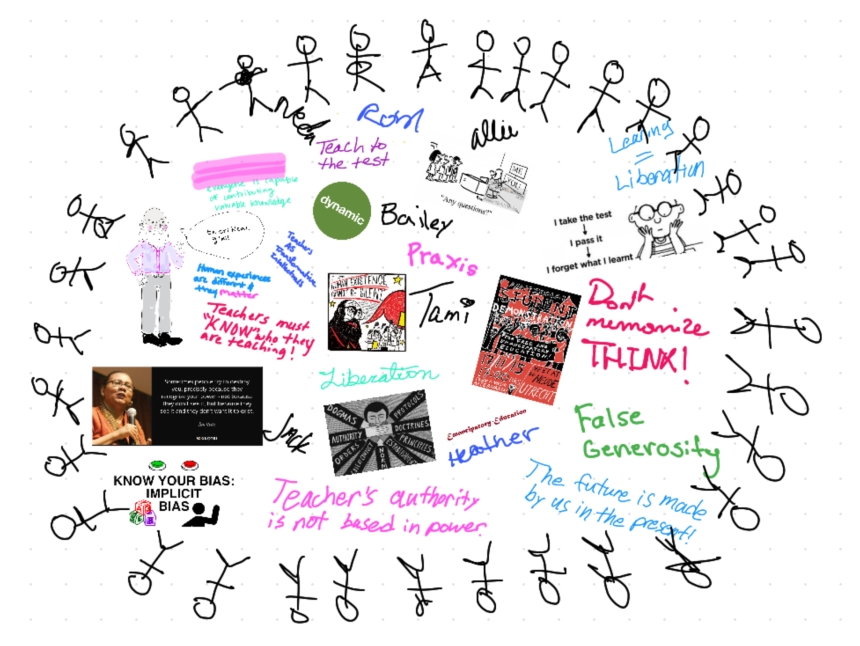Back when I used to play in my High School’s marching band, my director would say this to us often. Now, whenever I describe the importance of band to others, I always include this saying. Yes, when you’re older, knowing scales, standard step-sizes, or alternate fingerings is not really important (that is, unless that’s you’re job). However, being a part of marching band is so much more than what marching band is on the surface. Younger students Ironically, if you ask students why they are in marching band, they probably won’t mention marching or music.
Imagine my surprise when this phrase comes up again, this time in reference to learning from Harry Potter. In addition, learning music is an easy environment to observe an example of mindless overlearning. So then, I absolutely found this week’s reading particularly fascinating, especially Langer’s The Power of Mindful Learning.
Facts and truth are important, yes, however learning is more than just the information. It also includes how you process information. I think that is something we lack in our education. We shouldn’t stop at “This is true”. That’s where rote memorization stops. We need to expand; think about other questions. “Why is this true?” “Why is this not true?” “Can this be false?” “When is this false?” You’re learning information, but not learning how to think.
Well, let’s tie this back to mathematics again! One theme of mindful learning is valuing the uncertainty of information. As a mathematician, that’s a bit difficult isn’t it? “2 plus 2 is 4”. “Closed and bounded implies compact.” Mathematics seems to be built upon immovable theorems and unyielding truths. While it’s true when Langer said “one plus one does not equal two in all number systems”, you can’t escape the fact that mathematicians pride themselves with making proofs that are absolute.
As much as I love mathematics, I envy the… “malleable” nature of other fields. If you study Foreign Affairs, a single news story can change the context of a class you’ve been preparing all summer for. There are new interpretations of literary classics that have been around for decades. Last class, I described mathematics as “dead” knowledge to my group. That is, it’s just… there. In contrast, something like history is “alive”. You can debate about different historical perspectives and implications; contrasting ideas don’t have to be mutually exclusive.
Mathematics is a blatant culprit of mindless learning. I’m surprised Langer doesn’t bash on us more in the first two chapters.
So can we be mindful when we teach math? Well, YES! Thinking back, I’ve witnessed the effect of mindful & mindless learning when it comes to mathematics. A particularly clear example is teaching integrals at the Math Empo (I worked there for two and a half semesters). There are so many integration rules students learn. They go to the Math Empo and grind away at practice problems, almost to the point of overlearning (!). I often hear “I’ll keep doing them until I don’t see any new integrals”. Color me shocked when I also hear “It’s not fair, the quiz had an integral that wasn’t in the practice problems”. When math teachers focus so much on teaching the rules we lose out on the “thinking process” of the integrals. If we don’t practice mindful learning, of course we will have students fail to apply math skills to new problems.
As math teachers, we should also be expressing the problem solving strategies that we think of as we go through a problem. Why do students have trouble with word problems? Because we aren’t teaching them in a mindful way. We teach the equations, but not how to think between the sentences and the equations. When you write a theorem down, think about how the proof doesn’t work if you are missing a hypothesis. When students ask you a question in office hours, don’t just tell them the answer, lead them there! When people ask tutors at the Math Empo for help, we (the tutors) always ask questions back. People complain all the time. Yet, that’s mindful learning. We are trying to have the student engage with math themselves.
Mathematics is about problem solving, not solved problems. When we focus so much on rote memorization, you lose out on the bigger picture. So again, let’s end with our favorite saying:
It’s not about what you do, it’s about how you do it.

